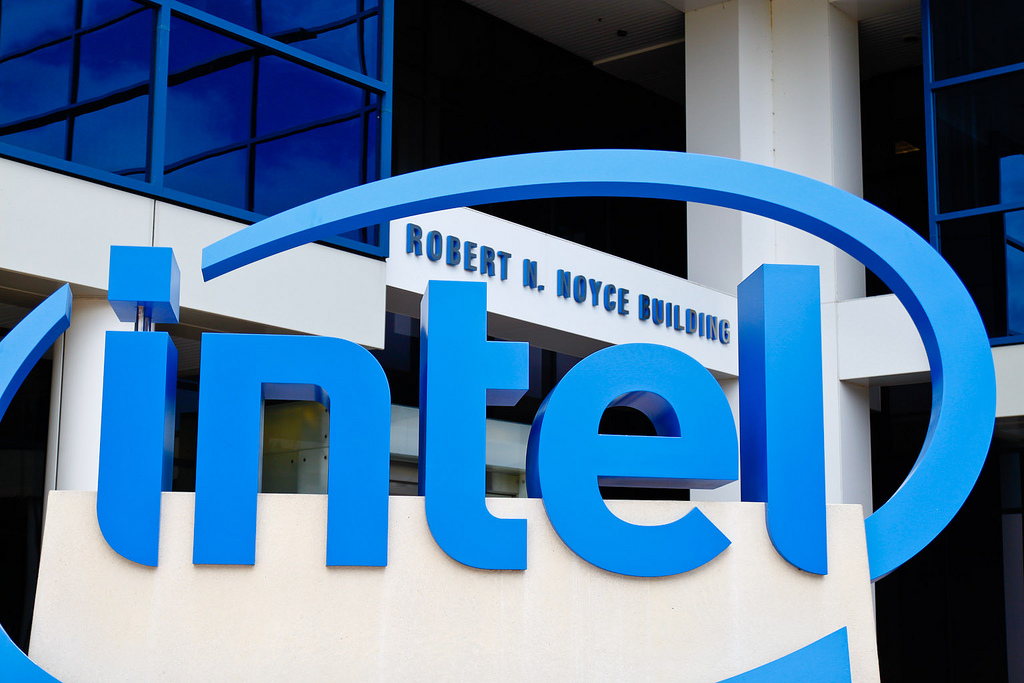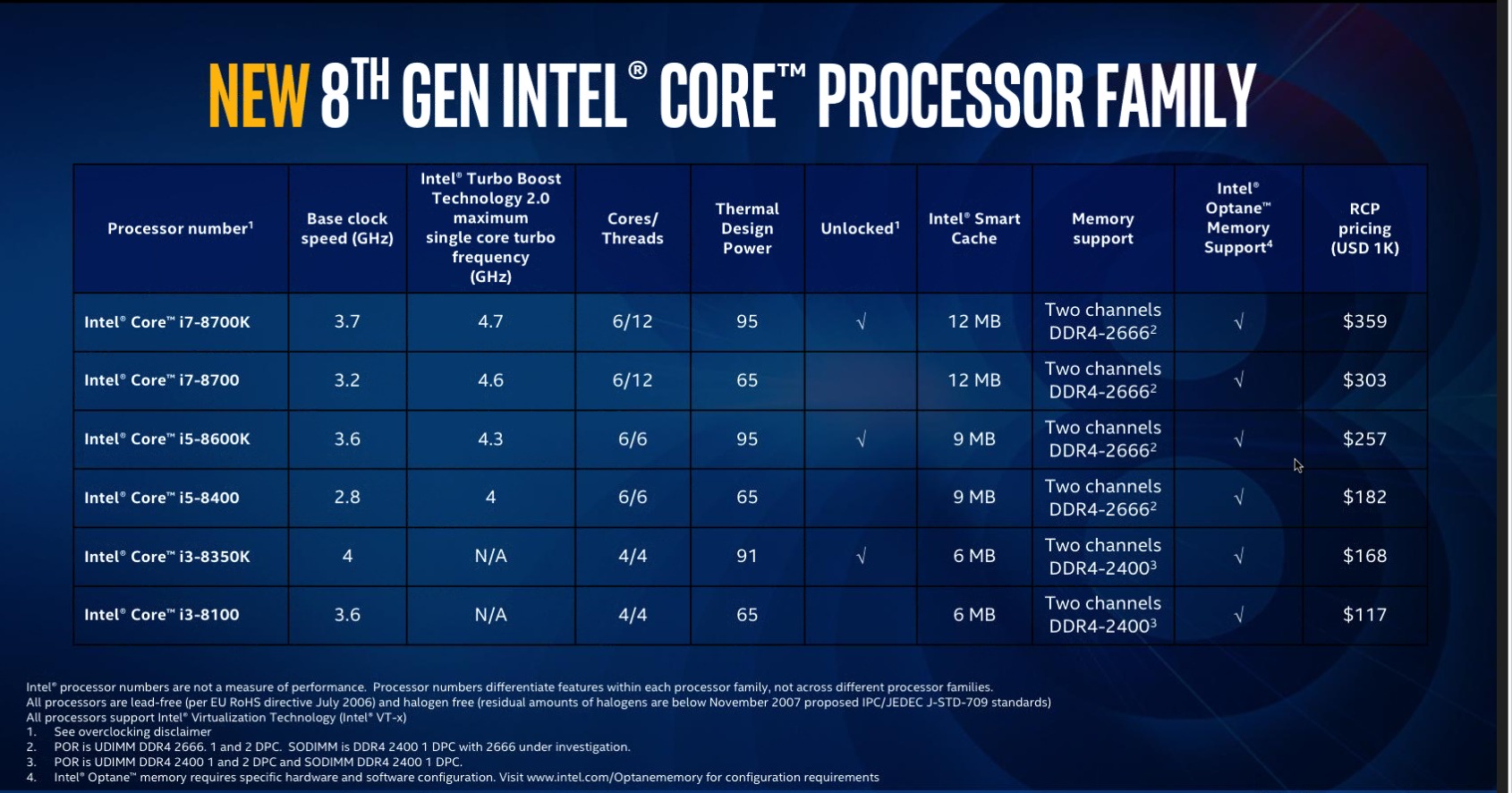If one thing is clear, is that many who game on PC are anxiously awaiting the release of Intel’s 8th gen processors. After all, the Santa Clara company is promising a significant increase in performance with this generation, and if leaked benchmarks are anything to go by, these could be Intel’s best performing CPUs in almost a decade.
Actually, the US company itself made those claims during a presentation last Sunday as it announced the launch of its desktop 8th gen “Coffee Lake” processors, which will be hitting shelves in the fourth quarter of this year. According to Intel, it’s new high end i7-8700K (which is a six-core processor) can deliver up to 25 % more frames per second in video games like Gears of War 4 compared to previous gen CPUs, meaning this thing is fast for sure. Intel referred to the upcoming i7-8700K as its “best gaming desktop processor ever”.
Also interesting is the fact that the new i5s are now six core parts, while the entry level i3s now boast four cores as standard, meaning performance in software and games should be increased across the board. Intel also provided prices for its new CPUs (see table below), although bear in mind that these are wholesale prices and retail prices will be a bit higher when these processors ship next October.
Of course, choosing between an AMD or Intel processor to upgrade a gaming PC is not so simple right now, as AMD’s recently released Ryzen CPUs offer pretty good performance at affordable prices too. But Intel has nullified AMD’s core count advantage now, and while for instance the upcoming Core i5-8400 and AMD’s Ryzen 5 1600 sport the same number of cores (six) and will be going for around $200, the Intel processor seems the better bet. This is because the new i5 will likely offer performance levels comparable to an i5-7600K if leaked benchmarks are to be believed, meaning it will outperform the Ryzen model.
The same holds true at the lower end, with the new i3-8100 and i3-8350K likely outperforming the equivalent Ryzen 3 CPUs. Intel also had the upper hand in the high-end, as the i7-7700K already beat equivalent Ryzen CPUs in most gaming benchmarks already, and this gap will only widen when the new i7-8700K hits retail.
AMD’s plans
Nonetheless, it’s clear AMD is not resting on its laurels, and recently announced its future plans at the GlobalFoundries Technology Conference as reported on wccftech.com.
According to the company’s Chief Technology Officer, AMD will be putting out second generation Ryzen processors as early as next year (using a new 12nm fabrication process). These will offer a bump in performance, while AMD’s CPU roadmap also makes it clear it plans to keep iterating its Zen architecture in the future, introducing new processors that offer increased performance without increasing power consumption.
And this is something that could make getting a Ryzen processor for gaming an attractive proposition, taking into account that AMD has pledged to keep using the same processor socket (AM4) until 2020. This makes investing in a AM4 motherboard apparently a more future-proof option than plumping for the Intel equivalent. Because the truth is some existing Intel owners were upset by the fact that upgrading to an 8th gen processor will require a new motherboard, as Intel confirmed during its announcement last Sunday.
Most people, though, will likely upgrade their motherboard when replacing their processor (in order to get a board which supports the latest standards for their new CPU) so this argument that the Ryzen option is more “future-proof” due to AMD’s long-term support for the AM4 socket doesn’t hold much water in my opinion.
In any case, it’s clear that AMD’s competition has forced Intel to offer better performing products this time around and waked up the tech giant from its slumber, and it will sure be interesting to see how the war between these two technology companies goes in the future. What matters, though, is that consumers will likely be getting some very good processor deals this year, whether they go for Intel’s soon to be released 8th gen desktop processors or AMD’s Ryzen, and that can only be a good thing.
Intel logo (link) [Creative Commons (link)]
8th gen processor family (Intel Corporation)


